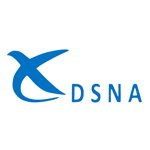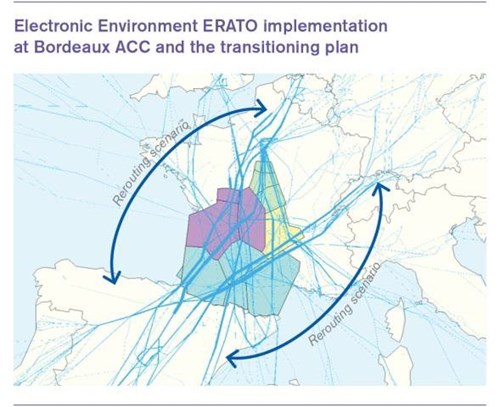Modernization of En-route Air Traffic Control System at the Bordeaux ACC

DSNA, the French Air Navigation Service Provider, is carrying out an in-depth modernization of its En-route Air Traffic Management system to cope with the increase of air traffic in France. As of Thursday, November 17th 2016, the 280 air traffic controllers at the Bordeaux Area Control Centre (ACC) will handle flights with a new-generation, stripless ATC system called “ERATO Electronic Environment (EEE)”.
The EEE program based on a SESAR solution has been co-financed by the European Union. EEE provides a modern work environment and innovative control assistance tools. Nevertheless, as a prelude to any major Air Traffic Control system implementation, capacities have to be temporarily reduced to allow each air traffic controller to master in real time operations all the new capabilities available to him/her. Delays in the South-West of France are therefore to be expected during two weeks. No flight cancellations have been requested by DSNA.
The transitioning plan
To minimize the impact on flight punctuality, DSNA, the French Air Navigation Service Provider, has elaborated a transitioning plan in close cooperation with the Network Manager (EUROCONTROL), adjacent Air Navigation Service Providers, and the most affected airlines and airport operators.

The traffic simulations carried out by EUROCONTROL have shown that for this transition period, up to 500 flights will need to be rerouted each day to avoid the airspace under the responsibility of Bordeaux ACC. Moreover, military activities in high altitude training areas will be limited. Regional airports will be impacted along with all flights from or to Paris from the South.
Maurice Georges, CEO of DSNA, said: “DSNA staff is totally mobilized with the implementation of this major project. I appreciate the efforts made by the entire aviation community to ensure a successful commissioning of the Electronic Environment ERATO in Bordeaux. The transitioning phase ahead of us relies on high predictability for all flights and trustworthy collaborative processes with our customers and partners”.
This major technological step will enable DSNA to deliver a high level of performance. Within the framework of the FABEC and in line with our Single European Sky commitments, DSNA will thus meet new challenges ahead for safe and sustainable air transport.


.png)

.jpg)






Comments
There are no comments yet for this item
Join the discussion